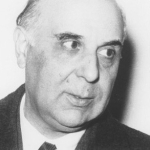Genial poets, pink-faced
earnest wits—
you have given the world
some choice morsels,
gobbets of language presented
as one presents T-bone steak
and Cherries Jubilee.
Goodbye, goodbye,
I don’t care
if I never taste your fine food again,
neutral fellows, seers of every side.
Tolerance, what crimes
are committed in your name.
And you, good women, bakers of nicest bread,
blood donors. Your crumbs
choke me, I would not want
a drop of your blood in me, it is pumped
by weak hearts, perfect pulses that never
falter: irresponsive
to nightmare reality.
It is my brothers, my sisters,
whose blood spurts out and stops
forever
because you choose to believe it is not your business.
Goodbye, goodbye,
your poems
shut their little mouths,
your loaves grow moldy,
a gulf has split
the ground between us,
and you won’t wave, you’re looking
another way.
We shan’t meet again—
unless you leap it, leaving
behind you the cherished
worms of your dispassion,
your pallid ironies,
your jovial, murderous,
wry-humored balanced judgment,
leap over, un-
balanced? ... then
how our fanatic tears
would flow and mingle
for joy ...




















Comment form: